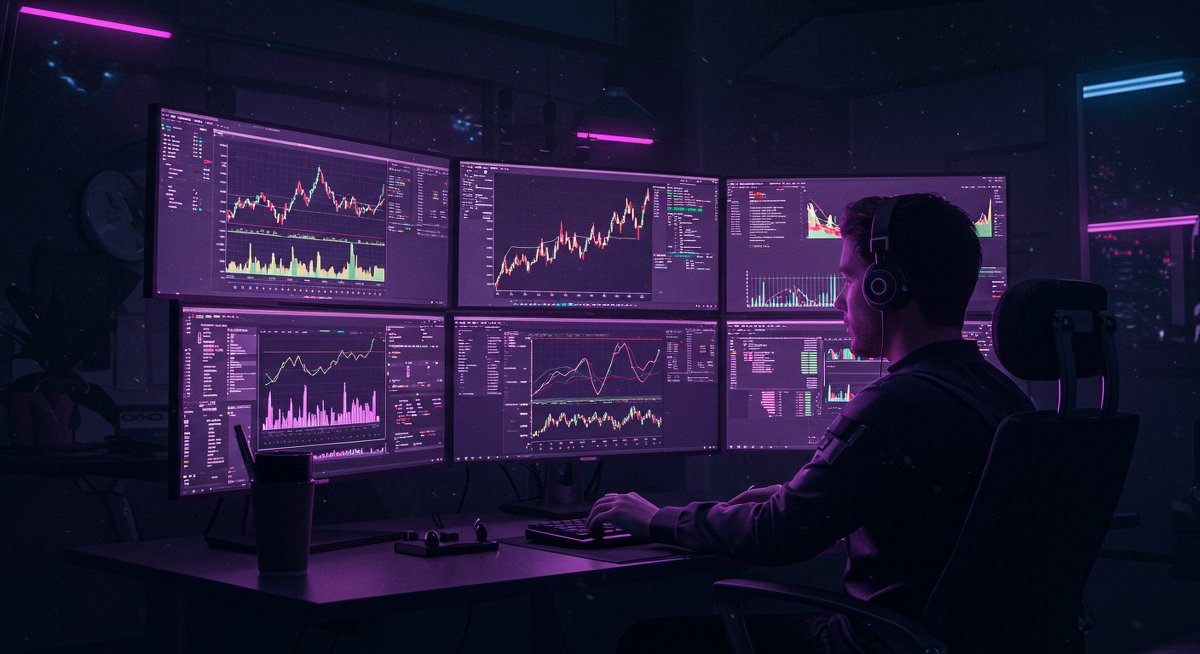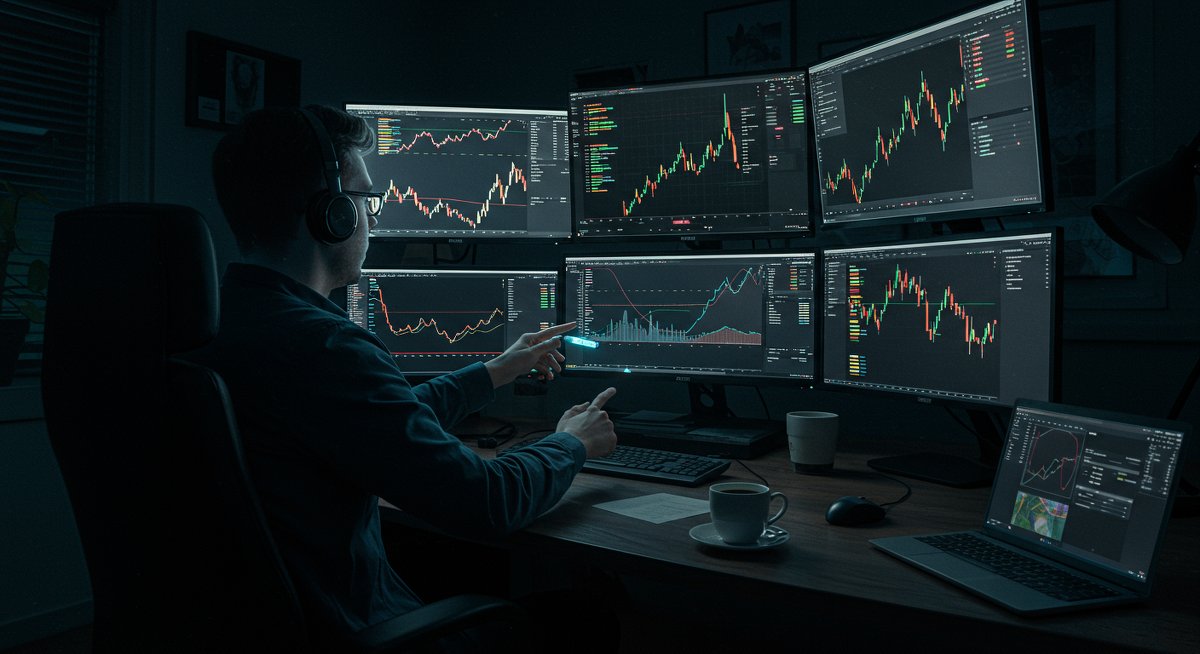That Screenshot That Started It All
So, I was scrolling through Reddit the other day when something caught my eye. It was a post on r/Bitcoin – a friend of mine had shared a screenshot of his crypto portfolio, boasting about hitting the $600k mark after being in the game for about three years. Now, this friend comes from a well-off family and has a solid job, so he’s not exactly hurting for cash. But still, seeing that kind of number out in the open made me uneasy.

I’ve been involved in crypto for a while now, and I’ve seen enough stories to know that flaunting your wealth online can be a dangerous game, especially in this space. We're talking about wrench attacks and even kidnappings targeting crypto holders. It might sound extreme, but it happens. People get desperate, and crypto wallets can be lucrative targets. And honestly, I wasn't even thinking about the extreme scenarios - I was thinking about simple phishing scams that target people who are known to hold crypto.
So, I did what any concerned friend would do: I sent him a private message. I tried to be gentle, reminding him that we used to be close and that I was just looking out for him. I suggested he take down the post for his own safety and the safety of his family. I emphasized that while advocating for crypto is great, showing off specific balances paints a target on your back. I ended by congratulating him on his success. I really thought I was doing the right thing.
The AI-Sounding Rejection
The response I got back felt… strange. It was polite, sure. He thanked me for looking out for him, acknowledged my experience in the crypto space, and agreed that safety should come first. He even said he’d be more careful about what he shares moving forward. But something about the language felt stilted, almost robotic. It lacked the natural, conversational tone I was used to from him. I even joked to a few other crypto friends that the reply seemed like it was written by AI. It was just too perfect.
Then came the kicker. A few hours later, I discovered he had blocked me. After knowing the guy for 30 years, a simple message of concern about his online safety resulted in a complete severing of ties. It was a bizarre and frankly hurtful reaction. It made me question the entire interaction, and the nature of friendships in the crypto age.
What This Means For Your Own Crypto Security
This whole situation, while frustrating, highlights a critical issue in the crypto world: security and privacy. And it's not just about avoiding wrench attacks or kidnappings. It's about protecting yourself from scams, hacks, and even unwanted attention from friends and family.
Think about it. When you publicly share your crypto gains, you're essentially telling the world that you have a certain amount of wealth. That information can be used against you in various ways. Scammers might target you with phishing emails or fake investment opportunities. Hackers might try to gain access to your accounts. And even well-intentioned friends and family might start seeing you differently, perhaps even asking for loans or handouts.
The core point here is that loose lips sink ships, even digital ones. And in the world of crypto, it's better to be safe than sorry. Keep your balances private, be careful about what you share online, and always be vigilant about potential threats. Assume that everyone is watching, because in many cases, they probably are.
The Ego Trap: Why People Flex
Let's be real, though. The urge to show off your gains is strong, especially when the market is booming. It's human nature to want to share your successes with others. But in the crypto world, that urge can be particularly dangerous. Why? Because crypto gains can be so disproportionately large, and because the community is often filled with both genuine supporters and envious onlookers.
Many people who flex their crypto gains are often seeking validation and attention. They want to be seen as successful, smart, and ahead of the curve. They want to impress their friends, family, and even strangers online.
But here's the thing: true success doesn't need validation. It speaks for itself. And in the crypto world, the smartest move you can make is to stay humble and keep your head down. Not only does it protect you from potential threats, but it also keeps you grounded and focused on your long-term goals.
The Dark Side Nobody Acknowledges
Let's get real: the crypto world isn't all sunshine and rainbows. There's a dark side that nobody really wants to talk about, but it's crucial to be aware of. I'm talking about the potential for scams, rug pulls, and outright theft.
I've seen it happen way too many times. People get caught up in the hype of a new project, invest a bunch of money, and then suddenly the project disappears, taking their money with it. Or they fall victim to a phishing scam and lose access to their entire wallet. Or they trust the wrong person and get their funds stolen.
The truth is that the crypto world is still largely unregulated, which means there are plenty of opportunities for bad actors to take advantage of unsuspecting investors. And while there are definitely legitimate projects and opportunities out there, it's important to do your research and be extremely careful about where you put your money.
Never invest more than you can afford to lose, always use strong passwords and two-factor authentication, and never trust anyone you meet online. It sounds harsh, but it's the reality of the crypto world. Being aware of the risks is the first step in protecting yourself.
Trading Crypto Across Borders: A Different Game
Now, if you're trading crypto from outside the US, there are a few additional things you need to keep in mind. The regulatory landscape varies wildly from country to country, and what's legal in one jurisdiction might be illegal in another.
For example, some countries have banned crypto trading altogether, while others have embraced it and are actively developing regulations to support it. Depending on where you live, you might be subject to different tax laws, reporting requirements, and even restrictions on the types of cryptocurrencies you can buy and sell.
It's important to do your research and understand the specific laws and regulations in your country before you start trading crypto. Otherwise, you could end up facing serious legal and financial consequences. A good starting point is to check what your local financial regulator has to say - this may be the SEC (if you're in the US), the FCA (if you're in the UK), or a similar body in your country. You should be able to find their guidance online.
Step-by-Step Security Upgrade
Okay, so how do you actually protect yourself in the crypto world? Here's a step-by-step guide to beefing up your security:
- Use a hardware wallet: This is a physical device that stores your private keys offline, making it much harder for hackers to access them. Ledger and Trezor are two popular options.
- Use strong, unique passwords: Don't use the same password for multiple accounts, and make sure your passwords are long, complex, and hard to guess. A password manager like LastPass can help you generate and store strong passwords.
- Enable two-factor authentication (2FA): This adds an extra layer of security to your accounts by requiring you to enter a code from your phone in addition to your password. Use an authenticator app like Google Authenticator or Authy instead of SMS-based 2FA, which is more vulnerable to SIM swapping attacks.
- Be careful about phishing scams: Never click on links in emails or messages from unknown senders, and always double-check the URL of any website you visit to make sure it's legitimate.
- Do your research: Before investing in any cryptocurrency, make sure you understand the project and the risks involved. Don't just blindly follow the hype.
The Takeaway: Stay Safe, Stay Humble
So, what's the lesson here? The story with my friend got me thinking. It's that in the crypto world, it's crucial to prioritize security and privacy above all else. Flaunting your gains might feel good in the moment, but it's not worth the risk.

Stay humble, stay vigilant, and always be aware of the potential threats. The crypto world can be a wild and exciting place, but it can also be dangerous if you're not careful. And sometimes, offering good advice, even with the best intentions, can backfire in unexpected ways. Maybe my friend will come around eventually, but until then, I'll be focusing on my own security and keeping my crypto gains to myself. Ultimately, your safety and well-being are more important than any amount of crypto.